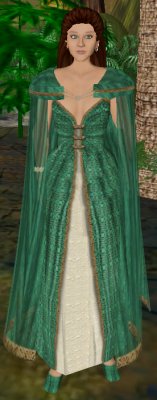Are avatars only pictorial representations of your self online?
Not necessarily, according to Susan Wu in her post about a panel session at SXSW – SXSW:Virtual worlds and avatars.
… But the truth is that everyone who uses any web site today already has an avatar – we just aren’t using the graphical metaphor of a virtual character to represent them.
So when I post a cutesy “unavailable” message on my google talk, or blog here, or twit way too much from my twitter account, or send an email, I’m creating an online identity which may or may not have the same characteristics as my offline personality.
Let’s presume we can call this online presence an avatar. If so, then it would be interesting to see how research done on avatars in 3D environments can be applied to this creation. For example, this paper about The Proteus Effect: The Effect of Transformed Self-Representation on Behavior , where the authors found that:
…participants assigned more attractive avatars in immersive virtual environments were more intimate with confederates in a self-disclosure and interpersonal distance task than participants assigned to less attractive avatars. In our second study, participants assigned taller avatars behaved more confidently in a negotiation task than participants assigned shorter avatars.
Makes me wonder what an equivalent to physical attractiveness would be in a non-pictorial avatar. Collegiality? Friendliness? Ability to make sharp and intelligent observations? Supportiveness? Adhering to the conventions of the online “place” and not seeming totally newb?
I also wonder whether the avatar I create with words is closer to the first or second image below. Or something completely different – a pink bunny or a talking spotty teapot maybe.


